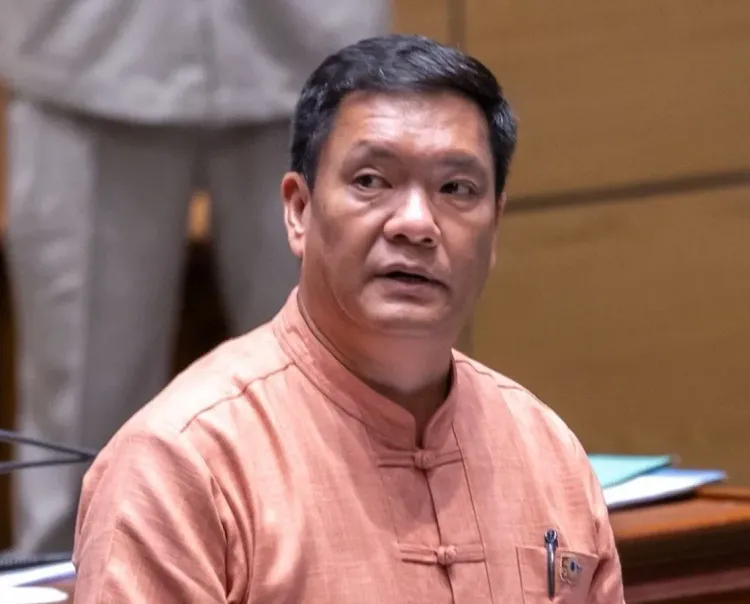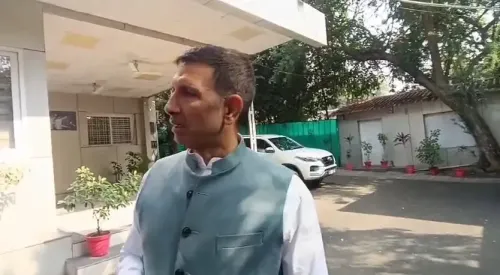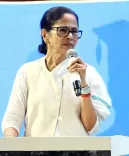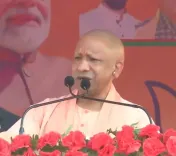How Can Arunachal CM Unite Against the Growing ‘Money Culture’ in Elections?

Synopsis
Key Takeaways
- Call for Unity: Collective efforts are essential in combating 'money culture'.
- Significance of Democracy: The integrity of the electoral process must be preserved.
- Historical Reflection: Celebrating 50 years of the Legislative Assembly's achievements.
- Technological Advancement: Adoption of e-Vidhan signifies progress in governance.
- Community Involvement: Active participation from citizens is crucial for change.
Itanagar, Aug 18 (NationPress) The Chief Minister of Arunachal Pradesh, Pema Khandu, emphasized on Monday that the escalating “money culture” in electoral politics poses a significant threat to the democratic integrity of the state. He called upon elected officials, MLAs, and the public to join forces in combating this issue.
During a special session of the eighth Legislative Assembly marking the Golden Jubilee of the house, Khandu articulated that this money culture during elections undermines democracy and the state itself.
“It is crucial for everyone to unite in eradicating this practice permanently. The circulation of money during elections jeopardizes our state and the integrity of the voting process. This detrimental practice must be addressed publicly, and voters should be educated about its adverse effects. Active community involvement is essential,” Khandu stated.
The Chief Minister noted that Arunachal is endowed with rich natural and human resources, and with appropriate policies, remarkable achievements are possible.
“The future of our state hinges on how we harness these strengths. In today’s Special Session of the Eighth Legislative Assembly, we celebrated 50 years of our Assembly, marking half a century of democratic evolution, debates, and decisions that have shaped the Arunachal we cherish today,” he remarked.
Khandu noted that authority and position are transient, but the legacy of virtuous actions endures through generations.
“These insightful words from one of our seasoned leaders resonate deeply. We are not just commemorating an institution, but also a journey of democracy and unity. When we poured water and placed stones from Arunachal's significant rivers—Tirap, Lohit, Siang, Subansiri, and Kameng—into the Unity Aquarium within the Assembly complex, it served as a reminder that although our streams may originate from distinct valleys, they converge to form one Arunachal,” he expressed.
Khandu unveiled the Golden Jubilee Commemorative Pillar, which symbolizes 50 years of resilience, representation, and progress. As attendees walked through the Photo Exhibition, they were reminded of the sacrifices made by leaders and citizens that have brought the state to its current state.
Reflecting on the Assembly's history, the Chief Minister recalled its inception on August 18, 1975, with 33 members led by the first Chief Minister, P K Thungon, alongside Speaker Nokmey Namati and Deputy Speaker Padi Yube.
Since then, the Assembly has conducted 137 sessions over 457 sitting days, enacting 273 significant Acts, he reported.
He highlighted the adoption of the e-Vidhan system, which made Arunachal Pradesh the first state in the Northeast and the third in the country to transition to a paperless Assembly.
He urged legislators to collaborate and address upcoming challenges with consensus.
“With a proactive political will, the state can achieve extraordinary accomplishments, making the impossible possible,” Khandu stated.
Over the past decade, Team Arunachal Pradesh has achieved significant milestones, demonstrating that teamwork will yield even greater results in the future, the Chief Minister concluded.









